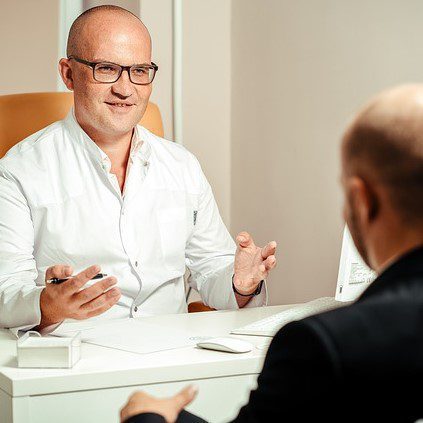Compassion [kuhm–pash-uhn]
noun
A feeling of deep sympathy and sorrow for another who is stricken by misfortune, accompanied by a strong desire to alleviate the suffering.
Compassion Corner is a new weekly series from Patient Worthy that will focus on the subject of compassion in the healthcare and rare disease space. In this series, we explore the role of compassion in this field and what it means for caregivers, patients, and others.

A current issue of the Philadelphia Inquirer describes the efforts of a doctor at Cooper University Hospital who has reviewed 1,250 papers and abstracts in an attempt to show how compassion impacts health care. He questioned whether compassion in health care is a significant issue and found enough evidence to show that it is.
Does Caring About Patients (too much) Lead to Burnout?
Doctors, especially young doctors, are told that having empathy and compassion can cause burnout. Mounting evidence, however, is proving that compassion can be beneficial to doctors and their patients.
Not all doctors believe compassion is the reason for burnout. A healthcare professional tells of two doctors who left their practice when they realized that the hospital administrators were not rating them according to quality care. The doctors say they were judged according to how many patients they saw and how many tests they ordered. Yet this “numbers game” can easily be the cause of burnout.
Studies have shown that less than one percent of doctor/patient time is spent on expressions of empathy and compassion. There is considerable evidence that patients who are treated with empathy and understanding trust their physicians and are more likely to heed their advice with the added benefit of fewer unnecessary tests.
Filling the Need
Dr. Stephen Trzeciak is head of Cooper University Health Care’s critical care department. He came to the conclusion several years ago that there is a compassion crisis in healthcare.
In fact, at that time he was beginning to experience burnout himself so he decided to “self-medicate.” He added forty seconds of compassion to office visits with as many patients as possible. He found that he was connecting more and caring more. He found that burnout had faded.
Dr. Trzeciak, now 47, recalls that when he attended medical school students were cautioned not to get emotionally involved with the patient’s case as it would likely lead to burnout. He cannot find data in this regard, but he has found evidence that disputes that theory.
Dr. Trzeciak was aware of the high incidents of burnout in medicine. He felt that rather than being caused by compassion, burnout was the result of depersonalization.
Now Dr. Trzeciak is determined to prove that the issue of compassion is a major problem.
He feels that it is time to pair science with compassion and not have one override the other. The goal is to show the impact on patients as well as the impact on cost and quality.
Critical Numbers
According to Boston’s Schwartz Center for Compassionate Healthcare, approximately fifty percent of the nation does not feel that health care offers compassionate care.
In addition, the Journal of General Internal Medicine carried an article stating that fifty-six percent of doctors say that being compassionate would add substantially to their daily workload.
It was obvious that depersonalization affected the quality of care and whether or not patients valued their care. Dr. Trzeciak saw that the problem was based on whether there was an emotional connection between doctors and patients. He decided to throw all his energy into this mission.
In the fall of 2020, Dr. Trzeciak was joined by Dr. Anthony Mazzarelli, the new president of Health Care at Cooper University, and an emergency physician, Dr. Brian Roberts.
In 2017, the three doctors presented their theory in an essay published in the journal Medical Hypotheses. The area of study, Compassionomics, is new. The doctors wrote that according to the art of medicine, it is a moral imperative that healthcare providers be compassionate.
Contrary to universal belief, the doctors write that science has proven that compassionate care provides:
- Improved patient outcomes
- Lower costs for payers and healthcare systems
- Lower burnout for healthcare providers
Dr. Trzeciak suggests that even forty seconds of compassion can make a difference. In 1999 a study conducted at the John Hopkins University noted that patients showed less anxiety when a physician spent only forty seconds assuring a patient that they were both on the same journey.
Compassion Has Become a Hot Topic in Medicine
The trio of doctors began their study about the effect of compassion training on PTSD patients who are critically ill. They also studied its relationship to provider burnout which they feel just adds fuel to the compassion crisis. An additional challenge will be how to compute costs associated with compassion training.
Ten years ago a neurosurgeon named Dr. James Doty founded a center for compassion. It is the only academic center of its kind in the U.S. Dr. Doty noted that there is a significant growth in the number of people studying compassion.
Dr. Doty also edited a 2020 handbook on “compassion science.” His interest in compassion encompasses diverse areas in addition to healthcare. His third conference on the subject was held in March 2019.
With respect to the health care system, Dr. Doty claims that the cause of burnout and depression is the result of a system that is slanted against caring. He adds that professionals may enter the medical field with the intent of helping others. However, these values often clash with profit-seeking institutions they work for.
Regarding doctor burnout, no matter what the cause, mistakes are bound to happen and the cost of care is bound to rise.
Dr. Trzeciak wants to be clear that compassion is never a substitute for clinical excellence. As he and his associates continue their studies on empathy and compassion, Dr. Trzeciak wants to emphasize that compassion can never replace a solid background in science.





